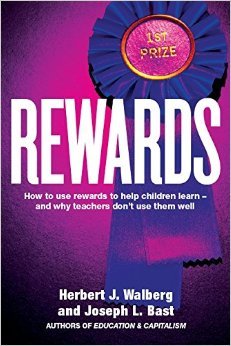John H. Bishop, a professor of human resource studies at Cornell University, has devoted much of his career to studying the effects of high-stakes exit exams on student achievement.
Bishop argues one reason American high school students don’t perform as well as students in other countries is “that they devote less time and intellectual energy to their schooling. Learning takes work, and that work is generally not going to be as much fun as hanging out with friends or playing Grand Theft Auto.” Exams with real consequences for college admission and other rewards can cause students to perceive that hard work is worthwhile.
High Stakes, Positive Results
Other countries reward students who score well on high-stakes exams prior to high school graduation with admission to elite universities and desirable academic programs, such as engineering and pre-medicine. Bishop’s research shows the incentives created by such exams raise achievement by 1.3 grade levels in science and one grade level in math compared to students in other equally developed countries.
Bishop’s research also shows U.S. students living in states requiring them to pass tests before getting a high school diploma learned more mathematics and science than students who did not. These students were more likely to complete homework, talk with their parents about schoolwork, and watch less television than their peers, all good habits necessary for high achievement.
Such laws, which existed in 17 states in 2004, test only for basic skills and establish a minimum level of academic competence for graduates rather than acting as a reward for advanced achievement.
External Exit Examinations
More promising are what Bishop calls “curriculum-based external exit examinations,” such as those administered in countries like Canada and in states Michigan, New York, and North Carolina. These countries and states reward students who score high on more-rigorous exams.
“Colleges consider [New York’s] Regents diploma a mark of significant achievement,” wrote Bishop, “making it worth students’ while to learn the tested subjects. The Regents exams give students a lofty goal to aspire to, rather than a low hurdle to jump over.”
Passing the Regents exams is also financially rewarding since high scorers gain free tuition to New York state universities.
Bishop’s research on student achievement in several countries shows curriculum-based external exit exams have positive effects on college enrollment, job success, and scores on international achievement tests. They also provide better measures of students’ achievement levels than minimum competency tests.
Not All Tests Are Equal
Bishop stresses not all tests are equal.
“[The ACT and SAT] are not comprehensive measures of a well-rounded secondary education,” said Bishop. “Both of these admissions tests fail to assess most of the material–economics, civics, literature, foreign languages, and the ability to write an essay—that high-school students are expected to learn. The energy that students devote to cracking the narrow SAT-1 and the ACT would be better spent reading widely and learning to write coherently, to think scientifically, to analyze and appreciate great literature, and to converse in a foreign language.”
It is important to acknowledge what the data on high-stakes testing do not prove. Aristotle elevated beauty above pleasure and material advantage, but any one of these may motivate people to a greater or lesser extent. Some students may be highly motivated to gain knowledge for its own sake, while others may be motivated more by the prospects of pleasure or material advantage.
Similarly, students in any given class or grade may vary greatly in their responsiveness to immediate and deferred rewards. For example, in Japan students try hard not to let down their small work groups (han) within their classes. Awareness of such individual and cultural variations, and using rewards that take them into account, can make incentives more effective.
Herbert J. Walberg ([email protected]) and Joseph L. Bast ([email protected]) are chairman and president, respectively, of The Heartland Institute and authors of Rewards: How to use rewards to help children learn—and why teachers don’t use them well. This article is excerpted from Chapter 3, “Rewards and Learning.”






